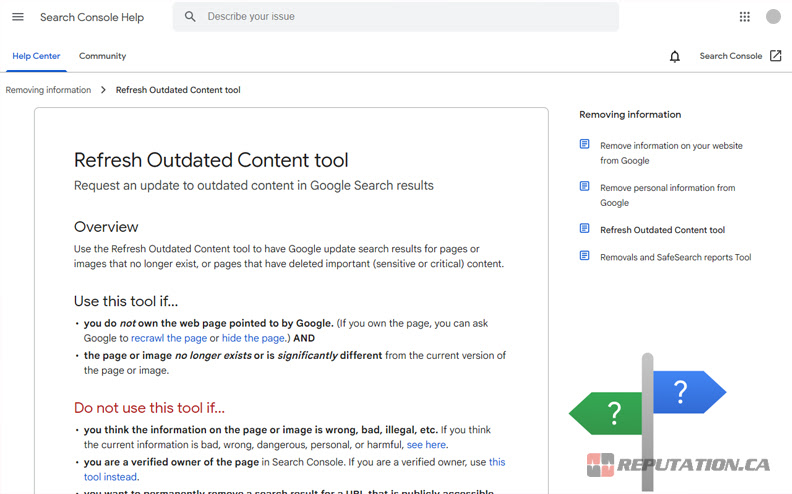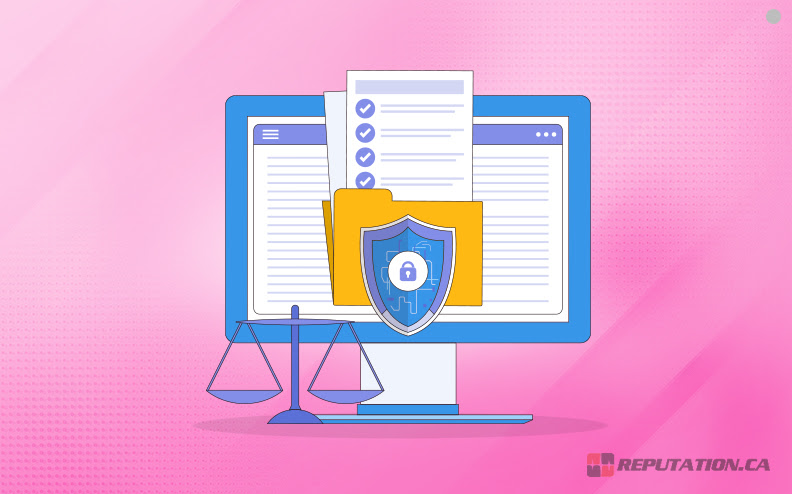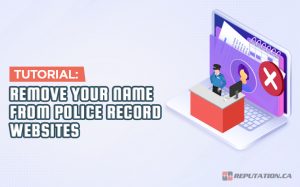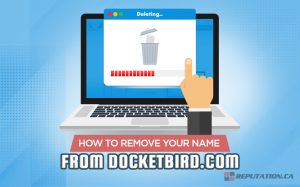Your name on a political donation list shows up in Google searches because federal and state transparency laws make campaigns report who gives them money. The laws are in place for good reasons and help to make sure elections stay honest. But if your personal information shows up at the top of search results, it can be uncomfortable, to say the least.
Federal law requires campaigns to disclose anyone who donates $200 or more to a candidate. The Federal Election Commission publishes these records online within 48 hours, and third-party sites take that same data and republish it in formats that usually rank well on Google. News organizations also pull donation information from these records during election coverage.
It’s pretty rare to get it removed. But a few options are out there if privacy matters to you. One strategy is to contact the secondary sources directly and ask them to remove your information. Alternatively, you can use legal avenues to make your donations less visible or at least allow you to donate more privately in the future.
Let’s go over how you can protect your privacy on these donation records!
How Your Donations Go Public
Your name shows up in search results because campaign finance information gets shared between a few different systems, and it lands in the public domain. Federal law says that any donation over $200 to a candidate or committee has to be reported to the FEC, and it means your name and your employer get included in the filing. After the FEC gets that information, it goes into a public database where anyone can look you up.
State-level campaigns work very similarly. Each state runs its own election commission, and they’re responsible for collecting donor information and making it available online for the public to access. The minimum donation amount that needs to be reported will be different from state to state. No matter where you donate, your contribution becomes part of a public record that anyone can look up and review.

Third-party websites play a massive role in why your donation is simple to find on Google. Organizations like OpenSecrets and Follow the Money pull all that data from government databases, and they create their own sites where anyone can search through it. It’s a lot easier to track down the donations this way compared to the government websites directly.
News coverage makes this even more visible. Reporters will download donor lists during election season, and they write articles about who’s supporting which candidates or which local figures donated the most money. Your name might get mentioned in one of these articles, and when it does, it can stay in search results for years – maybe even forever. Local newspapers love to cover big donors in their area, especially if you own a business or have a name that residents know in the community.
Google doesn’t make any of this content on its own – it just collects and organizes everything that already exists out there on government websites, news articles and those third-party databases I mentioned earlier. Type someone’s name into the search bar, and Google pulls together every page where that name shows up alongside a political donation. This information comes from the original campaign finance reports that the candidates and committees have to file because of federal and state transparency laws.
How Laws Make Your Donations Public
Political donation records go online and stay there because federal law says they have to. The Federal Election Campaign Act (passed decades ago) requires every campaign to report the donor information directly to the government. Disclosure laws like these were designed to help stop corruption from happening and make sure that the political process stays as transparent as possible.
Federal donations work on a pretty basic system – anything over $200 gets reported along with your name and address. State-level laws are all over the map, depending on which state you live in. Some states have a $100 reporting threshold, and others won’t ask for disclosure until you hit $1,000 or higher.
The courts have backed these transparency requirements for years. Multiple cases have shown that the public’s right to know who funds political campaigns matters more than donor privacy concerns. Campaigns can’t back out of this – they have to follow these laws.

After you donate, the campaigns send those records to government agencies like the Federal Election Commission. From there, the agencies make that data publicly available. Third-party websites then pull the information and turn it into the searchable databases that anyone can browse online. Search for your name, and your entire donation history might show up – which is how this all works.
Campaign finance laws have strong legal backing and aren’t going away anytime soon. Donation transparency is part of how democracy works in this country, even if you’d prefer to keep your name private. You can manage it a bit better if you know why your information shows up online in the first place. Even better, you have options for how your donation history shows up in search results and who can find it.
Contact the Source Websites Directly
Then you’ll need to contact the websites themselves – the ones that are actually publishing your donation information online. These are the sites where your name shows up when someone searches for you. This might mean contacting news outlets that ran stories about campaign contributions, or reaching out to political data aggregators (these are the sites that pull donor records from multiple sources and compile everything into one place). Campaign finance websites are another common one, and they usually republish the same data you’ll find elsewhere.
Most of these publishers have their own take on when and why they’ll remove content, so you should know what those policies are before you reach out. Some publications will actually take down old articles or at least strip out names from outdated donor lists, especially if the information is a few years old and doesn’t serve any public use anymore. Your best bet is to send them a request that’s polite and makes sense. Explain your situation in plain language and tell them why the information isn’t newsworthy anymore or spell out the exact ways it’s hurting you. Stay factual, stay respectful and give them a legitimate reason so they can help.

Removing the content directly from the source website works much better than just asking Google to delist it. Once the source material gets taken down, Google won’t have anything left to index. As Google re-crawls and updates its database, the information will drop out of the search results on its own. Requesting only a delisting from Google leaves the content still live on the website for anyone to find. A removal at the source is the best way to make sure it stays down.
Be honest about what you can achieve with this. Official government databases have to keep these records by law, and they almost never remove them. Secondary publishers are a different story, though, and they usually have more flexibility on this. They’re not held to the same transparency requirements, so a respectful request with good reasoning behind it might actually work with these organizations.
How Google Handles Your Removal Requests
The platform has an outdated content removal tool that lets you flag pages that still show information that’s been taken down from the original website. This tool works well if a database has already removed your record and all that’s left is to get Google to update its index so it matches what’s currently live.

Google has policies about personally identifiable information on its platform, and they might help you in some situations. When safety problems or active doxxing attempts come up, they may be willing to remove that content. Fill out their legal removal forms to see if your case fits their requirements.
Google almost never agrees to remove legally published public records from its search results, and political donation data definitely fits in that category. Since the donations were already released through official government channels, they’re a part of the public record. Google usually believes that the public interest matters more than your privacy request for this type of information.
Europe has these right-to-be-forgotten laws that give the residents there much more control over what personal information shows up online. Europeans can request that some information be removed from search results, and these companies have to comply. In the United States, though, we don’t have access to those same protections. American law deals with public records in a very different way and usually puts transparency ahead of personal removal requests.
You can still submit a request through Google’s official forms if you want to try that. The success rate for donation records is pretty low, though, unless your situation has some pretty unusual circumstances around it.
Legal Ways That Help Your Privacy
If your removal request falls through or just doesn’t go the way you wanted it to, that’s okay – you’ve still got some solid options. Many donors don’t know that legitimate privacy protections are out there for future contributions, and every one of them stays well within legal boundaries.
A handful of states have passed donor privacy laws that let donors control who sees their information. California has some anonymity options if you donate, depending on the type of contribution and the amount (the exact specifics change quite a bit from situation to situation). Legislators put these protections in place after realizing that donors sometimes need to keep their political affiliations under wraps for legitimate reasons. Before your next contribution, check to see what privacy options your state has.

Reputation management is something else you should think about. The idea is to create more online content about yourself (professional profiles, personal websites or social media accounts) and over time, these will rank higher in search results. Done right, they’ll push those old donation records down the page where most searchers won’t scroll. It does take time and consistent effort – I won’t sugarcoat that. The upside is that you get more control over what shows up when someone searches for your name.
You could also try going with a legal variation of your name on future donations. Plenty of donors go by their middle name, or they’ll use an initial instead of their full first name. Just remember that whatever name you choose has to be truthful and connected to your identity – this part matters.
Here’s what you need to avoid. Straw donations are illegal – that’s when you give money under someone else’s name to hide your identity, or if you ask another person to donate for you instead. Either one of these can land you in serious trouble. Campaign finance laws are in place to keep everything transparent, even if that level of openness feels uncomfortable for some donors.
Most political donations are public information by design, and the law isn’t changing on this anytime soon. If privacy matters to you, though, you do have some legitimate options that’ll keep you well within legal boundaries.
Monitor and Manage Your Reputation
It can be an uphill battle to get your name removed from political donation records, mostly because transparency laws are in place to keep the public informed about who’s funding the campaigns. You’ll get much better results by going directly to the original source that published your donation information than by trying to convince Google to remove the information from their search results.
Privacy is a concern even when we’re talking about a system built on government transparency. Elected officials are trying to find the right balance between public accountability and personal privacy. A few states have started to look into stronger privacy protections for political donors, especially for small contributions that probably don’t need the same level of attention as large campaign funding does. Laws are starting to change, and more advocates agree that not every donation should be searchable online forever.

It’s worth it to take control of the results that show up when someone searches for your name, even if you can’t remove everything. Each action you take gives you more control over how you’re presented online, and this control matters when employers or clients look you up. You’re not powerless here, and when you learn how the system works, you can make it work way better for you.
We at Reputation.ca are Canada’s top resource for review management, social media, public relations and crisis response. Maybe you’re dealing with cancel culture, or maybe you want to build a stronger online image – either way, we can help.
Contact us at Reputation.ca for a custom plan that works for you.






